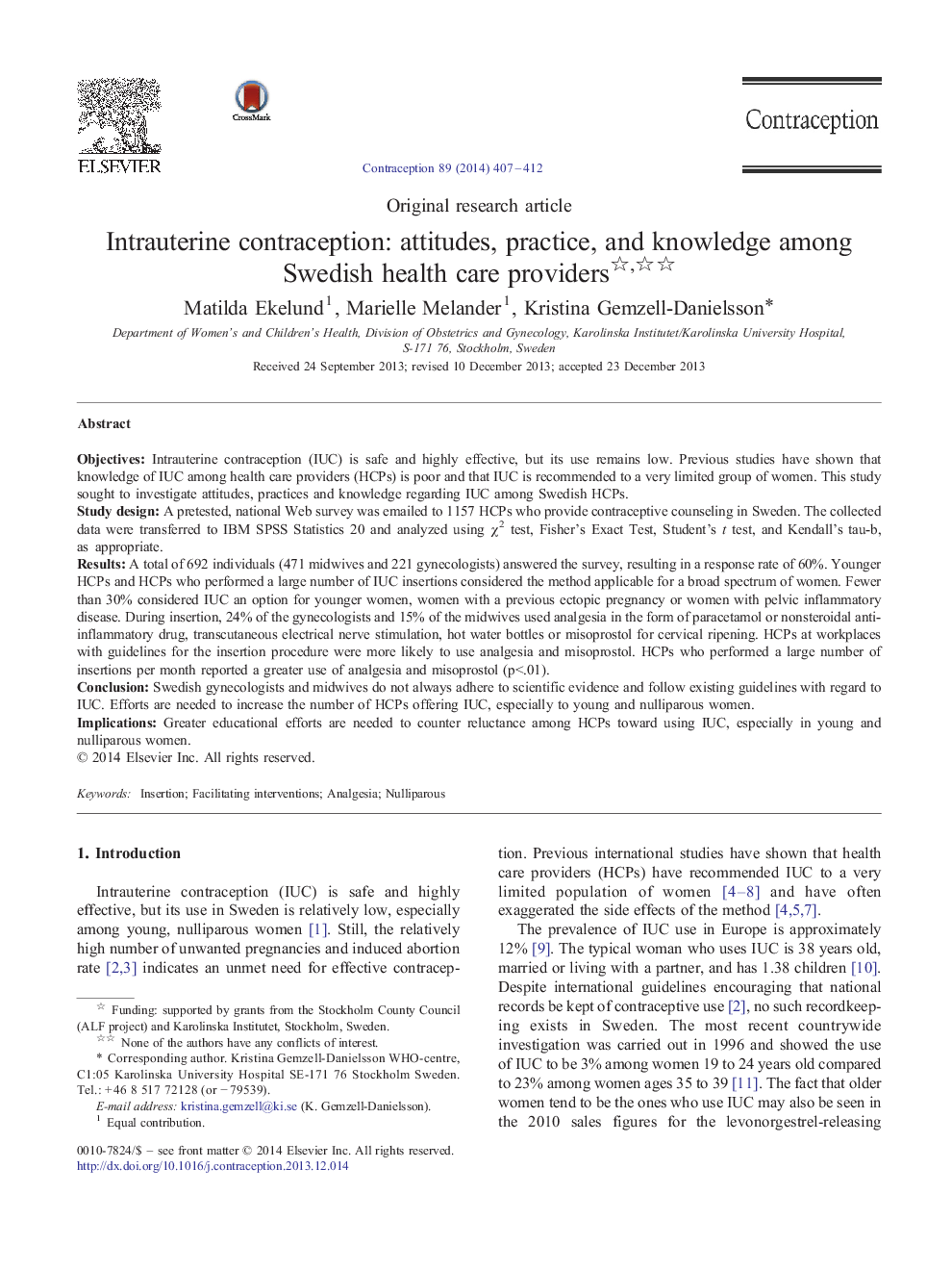| کد مقاله | کد نشریه | سال انتشار | مقاله انگلیسی | نسخه تمام متن |
|---|---|---|---|---|
| 3913118 | 1251417 | 2014 | 6 صفحه PDF | دانلود رایگان |
ObjectivesIntrauterine contraception (IUC) is safe and highly effective, but its use remains low. Previous studies have shown that knowledge of IUC among health care providers (HCPs) is poor and that IUC is recommended to a very limited group of women. This study sought to investigate attitudes, practices and knowledge regarding IUC among Swedish HCPs.Study designA pretested, national Web survey was emailed to 1157 HCPs who provide contraceptive counseling in Sweden. The collected data were transferred to IBM SPSS Statistics 20 and analyzed using χ2 test, Fisher’s Exact Test, Student’s t test, and Kendall's tau-b, as appropriate.ResultsA total of 692 individuals (471 midwives and 221 gynecologists) answered the survey, resulting in a response rate of 60%. Younger HCPs and HCPs who performed a large number of IUC insertions considered the method applicable for a broad spectrum of women. Fewer than 30% considered IUC an option for younger women, women with a previous ectopic pregnancy or women with pelvic inflammatory disease. During insertion, 24% of the gynecologists and 15% of the midwives used analgesia in the form of paracetamol or nonsteroidal anti-inflammatory drug, transcutaneous electrical nerve stimulation, hot water bottles or misoprostol for cervical ripening. HCPs at workplaces with guidelines for the insertion procedure were more likely to use analgesia and misoprostol. HCPs who performed a large number of insertions per month reported a greater use of analgesia and misoprostol (p<.01).ConclusionSwedish gynecologists and midwives do not always adhere to scientific evidence and follow existing guidelines with regard to IUC. Efforts are needed to increase the number of HCPs offering IUC, especially to young and nulliparous women.ImplicationsGreater educational efforts are needed to counter reluctance among HCPs toward using IUC, especially in young and nulliparous women.
Journal: Contraception - Volume 89, Issue 5, May 2014, Pages 407–412
